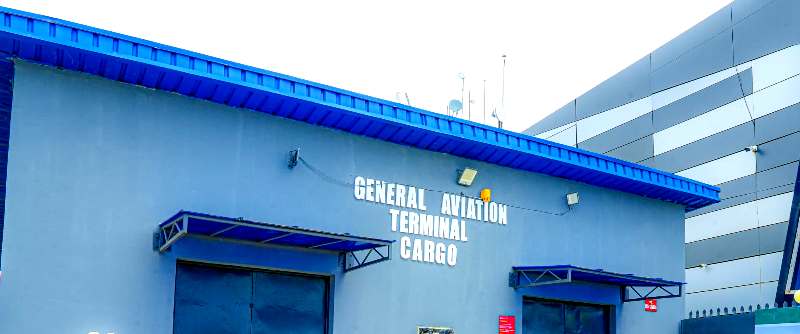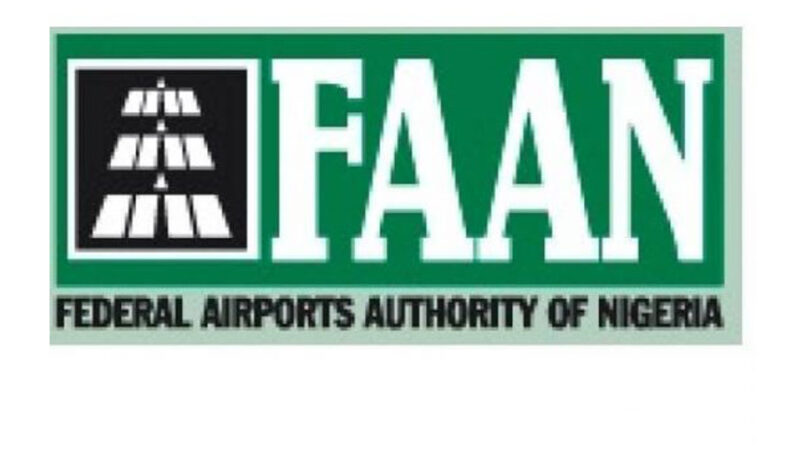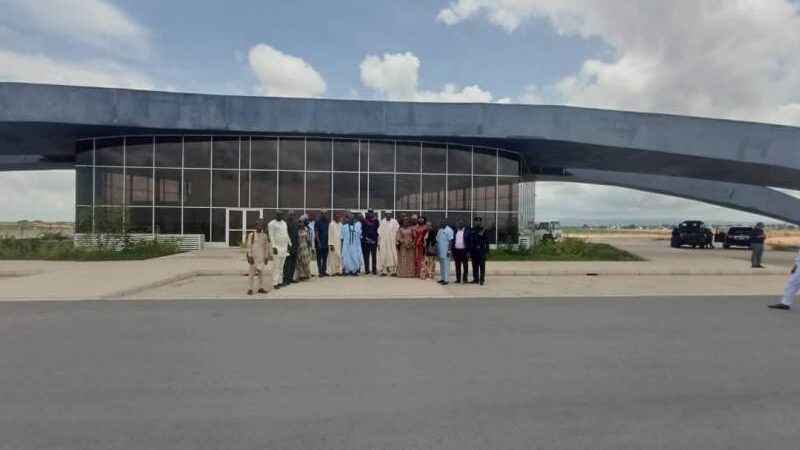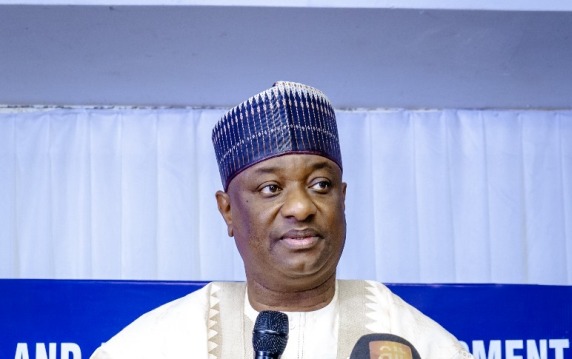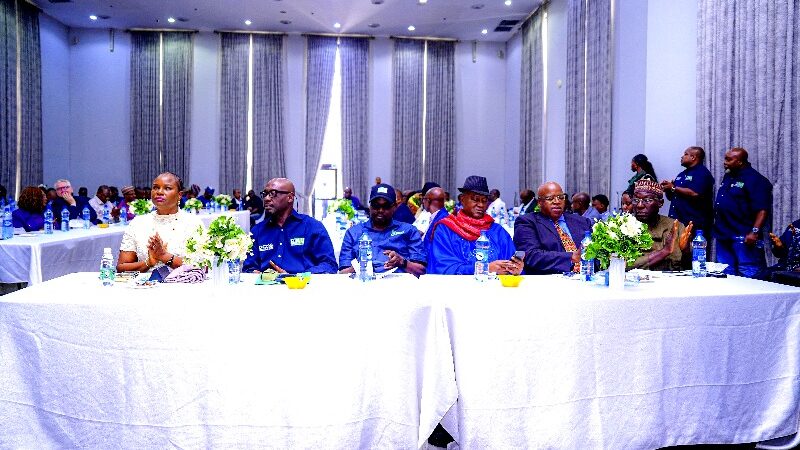Can Airports Development Model Work For Nigeria?

Airports are an essential national infrastructure that can significantly boost economic development by providing fast mobility links for people and cargo, especially in a vast country like Nigeria. However, sustaining the development and operation of these airports goes beyond the initial intention to build them.
With the establishment of over 30 airports in Nigeria as at today, it would require viability of the airports to sustain and secure air service operations to destinations and promote connectivity. This requires adequate funding for the airports.
Investment opportunities and how to finance airports through options, including airport development grants, government infrastructure funding, private equity contributions, and private sector partnerships was the focus of the 10th Airport Business Summit and Expo (ABSE) 2025 held at Murtala Muhammed International Airport, Lagos, July 16-17, 2025, under the theme, Investment Opportunities In Airport Public-Private-Partnerships.
In his speech at the event, the Permanent Secretary, Federal Ministry of Aviation & Aerospace Development, Dr. Ibrahim Abubakar Kana said: “We understand that PPPs thrive where the environment is stable, transparent, and predictable. To this end, the Ministry has worked closely with the Federal Ministry of Finance, the Bureau of Public Enterprises (BPE), and the ICRC to streamline procedures, de-risk investments, and ensure contractual clarity.”
The right model for airports development was a subject of discussion. The Rector of Nigeria College of Aviation Technology (NCAT), Zaria, Dr. Ismaila Danjuma said because airport investments are capital intensive, potential investors are interested in risks involved and therefore, the Federal Airports Authority of Nigeria (FAAN) needs to analyze the risks associated with private investments in the airports before choosing an appriopriate model of PPP that should be employed such as Build Operate & Transfer (BOT), Build Operate & Own (BOO) and so on.
The Chief Executive Officer of Ibom Air Limited, Mr. George Uriesi said it does not matter what model of airport development is adopted as long as the objective of an airport’s existence is actualized. However, in making decisions about the institutional arrangement, it is important to be decisive.
“If you decide to adopt PPP model, that’s fine. But don’t pretend that you are doing PPP and yet, it is government that is running the business.”
He said the British Airports and Paris Airports are privately run and are doing well. In Airports Company South Africa (ACSA), it is PPP and they are doing well. Dubai, Singapore and Munich Airports are government owned and they are doing well. There has to be a decision on specific institutional arrangement to adopt.
The Managing Director of Asaba Airport Company, Mr. Chris Pinick concurred that success is not restricted to any particular model, citing Shangi Airport that is owed 100% by government. He stated that it is partnership that makes a model work.
“If you want the airport to work, it has to be a partnership with the community, the government agencies, all stakeholders, including airlines. If there are no airlines, the airports will die. Partnership is key,” he said.
He opined that “we have too many airports in Nigeria” considering the right criteria for setting up an airport, attraction of airlines patronage, huge expenses involved in constant modernization, training and sustained viability, adding that “to think you can make money with just two flights per week as an airport is not realistic.”
Pinick said Asaba Airport has been privately managed for four years under a 30 year- concession arrangement after being taken over from the Delta State government, stating that the N25,000 per landing it is charging can hardly justify the viability of the facility because of huge expenses like installation of solar for the navigational aids, payments made to various agencies, installation of brand new ILS, exopenses on wildlife, runway maintenance, staff overheads, and so on.
Uriesi emphasized that “without an airline, there is no airport” and so, partnership is critical.
The Managing Director of Aerocontractors, Capt. Ado Sanusi said “why PPPs don’t work efficiently is that we lack full understanding of what PPP means.” He said PPP has been restricted to privatizing the commercial landside. Even though the runway is an integral part of the airport system, it is considered a sovereign asset of the country. He said there can be a PPP arrangement where even though there is access restriction to the runway, a concessionaire is allowed to maintain the runway and charge fees for it.
Uriesi said the success of an airport development model begins with a masterplan that is strictly followed, adding that airport is not run with an ad-hoc mentality of introducing car parks, shops and other items that were not originally in the masterplan.
On passenger facilitation and experience, the Chief Operating Officer of Bicourtney Aviation Services Limited (BASL), operators of Murtala Muhammed Airport Terminasl2, Mr. Remi Jibodu said “the seamlessness of airport facilitation begins from the design of the airport. If you start an airport with a very poor design, you are going to struggle.”
Agreeing with this position, Capt. Sanusi said the terminal building forms critical part of the rating of an airport. He noted that in Nigeria, the time spent by the passenger around the airport before and after the flight is longer than the time spent inside the aircraft because of the poor infrastructure and facilitation process.
The Head of Marketing, Middle East & Africa at Munich Airport International and Consultant, Mr. Prasad Delip in his presentation of Airports Revenue Planning said forward planning is very important, stating that the masterplan of the Munich Airport of 1990 was designed in 1984 with the projected traffic growth in mind and that this determined what should be built by 2022 as part of the original masterplan execution. Munich Airport has 40 million passenger traffic and could have hit 50 million but for the covid experience.
He emphasized the importance of routes planning and development in partnership with airlines stating that “if the routes make sense, the passengers will come.” He said proper routes or air service development generates significant revenue, secures existing traffic, attracts additional traffic, improves market access and supports development of local infrastructure.
He stressed that airports need marketing because of the competitive environment within which they operate, to keep up with changing environment and to keep up with changing customer needs.
“An airport without revenue is a big punishment. So, the airport has to design the revenue base in such a way that it can provide services constantly and profit,” said Jibodu.
Highglighting the challenges of airlines in Nigeria’s airports, Capt Sanusi identified incessant power supply, poor maintenance culture and several infrastructure deficiencies that cost a lot of money for the airlines.
“We need to reexamine out maintenance culture and re-examine how we build new airports,” he said.
He said the inadequate coordination of aviation agencies that make passengers go through close to six screening points to be asked the same questions discourages foreign investment adding that operation of an airport must consider processing time. “The more you reduce the time spent, the better for the airlines because it causes delays for the airlines and affects passenger experience,” he said.
He also called for a review of the protocols at the airports as VIPs who decide to go through the same check-in process with other passengers, leave a negative impression for the other passengers when they violate the process.
The Permanent Secretary, Dr. Kana said: “We are currently exploring PPP models for air navigation services, aerotropolis development, and aerospace technology parks. We envision a future where Nigeria becomes a hub for regional air travel, maintenance repair and overhaul (MRO) services, and space science applications.
In this regard, I invite all potential investors, local and international, to consider Nigeria not just as a market, but as a long-term partner in progress. We are open for business—and open to partnership.”
The Managing Director of ABSE, Mr. Fortune Idu said “ABSE was formed to close the gap in international information exchange, domestication of global findings, and setting direction and improving local content in Nigeria’s airports. The forum aimed to provide guidance on professional conduct in building a highly critical and sensitive airport business, ensuring growth and sustainability”.
SEE MORE PHOTOS

